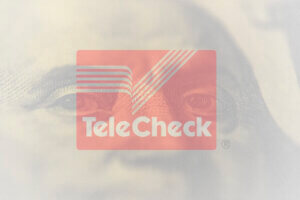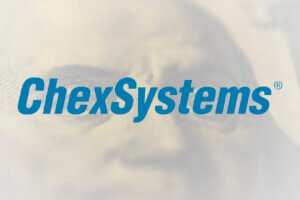The Fair Credit Reporting Act (FCRA), initiated in 1970, is a U.S. federal law that aims to ensure the accuracy, privacy, and fairness of information in your credit reports.
It applies to consumer reporting agencies (CRAs), including credit bureaus like Equifax, Experian, and TransUnion, and protects consumer rights in several ways.
The Federal Trade Commission (FTC) and the Consumer Financial Protection Bureau (CFPB), two government agencies, oversee and enforce FCRA provisions.
The FCRA is like a referee for your financial game, ensuring fair play with accurate consumer credit information and your right to check your score and dispute any foul play.
Your 9 Major Rights Under the FCRA
The FCRA empowers you with 9 key rights, which we will explore below. These rights protect your financial information, ensuring fairness and accuracy throughout.
1. Knowing About Report Usage
You must be notified if the information in your credit report is used to deny you credit, insurance, or employment or to take other adverse action against you. The notification must include:
- The name, address, and phone number of the person or entity that used your report.
- The name of the consumer reporting company that distributed the information.
2. Accessing Your Consumer File
You have the right to request and receive a free ‘consumer disclosure’ (credit report with additional information) from the three nationwide credit bureaus and each nationwide specialty consumer reporting agency once every 12 months.
You are entitled to additional free reports in situations such as:
- If someone takes action against you based on your credit file/report.
- If you are an identity theft victim and, place a fraud alert on your file.
- If your file contains inaccurate information due to fraud.
3. Accessing Your Credit Score
You have the right to see your credit score, but you’ll usually need to pay for it if you request it from relevant agencies. This applies to scores used for residential real estate loans.
You can access your credit score free of cost on many credit card statements, online account portals, and some monitoring services. Just know that these scores might be different from the exact ones lenders use.
If you want the most accurate score or extra features, you can pay for it directly from credit bureaus or dedicated third-party credit score websites and apps.
>> Learn more: How to increase credit score
4. Disputing Inaccurate Information
If you find any errors or inaccuracies in your credit report, you have the right to report them to the consumer reporting agency.
CRA’s investigation: Once you dispute the information, the CRA must investigate and:
- Verify the information with the source.
- Correct or delete the information if it’s inaccurate.
- Notify you of the results within 30 days.
>> Read up on How to remove information from credit reports
5. Limitations on Reported Information
Outdated negative information, such as late payments or defaults, cannot be reported by CRAs after a certain period of time. This typically means:
- Most negative information is removed after seven years.
- Bankruptcies are removed after ten years.
This helps ensure your credit report reflects your current financial situation and doesn’t unfairly penalize you for past mistakes.
6. Controlled Access to Your Consumer File
Consumer reporting agencies can only share your information with people who have a valid need, such as:
- Considering your application for credit, insurance, or employment.
- Verifying your identity or background.
- Investigating fraud.
You must give your written consent before a consumer reporting agency can share your information with your employer or a potential employer.
7. Opting Out of Prescreened Offers
You can choose not to receive unsolicited credit and insurance offers based on your credit report by calling the toll-free number provided by the credit bureaus along with the offer. If you want to opt-out with the major nationwide credit bureaus, dial 1-888-567-8688.
8. Security Freezes and Fraud Alerts
You have the option to implement a security freeze on your consumer report, which will prevent any CRAs from releasing information without your express authorization. This helps prevent identity theft and unauthorized credit applications.
You can also place an initial (1-year) or extended (7-year) fraud alert on your file. This requires businesses to take extra steps to verify your identity before extending new credit.
9. Pursuing Compensation for Violations
If a consumer reporting company, a user of your report, or a furnisher of information violates the FCRA, you can sue them for damages in state or federal court.
What Are Consumer Reporting Agencies (CRAs)?
Consumer reporting agencies, aka consumer reporting companies, are specialized companies that collect and maintain detailed reports on individuals’ credit and banking history.
These reports, often referred to as consumer reports, are used by banks, credit card companies, lenders, utility companies, insurers, employers, and other authorized parties to assess a consumer’s creditworthiness for approving accounts, granting loans, or accepting checks.
The following are the main CRAs in the US:
CRAs that specialize in check verification:
- TeleCheck
- Certegy Check Services
- Shared Check Authorization Network (SCAN)
CRAs that specialize in checking and savings account history:
- ChexSystems, Inc.
- Early Warning Services (EWS)
- Cross Check
CRAs that specialize in credit history (credit bureaus/credit reporting agencies):
- Experian
- Equifax
- TransUnion
How Consumer Reporting Agencies Work Under the FCRA
Consumer reporting agencies, such as credit bureaus, play a central role within the FCRA framework, acting as the information hub for your financial reputation. Here’s a breakdown:
CRAs’ role/purpose under the FCRA:
- Data collectors: Consumer reporting companies gather information about consumers’ financial history from various sources like lenders, creditors, and public records.
- Data repositories: They store and maintain this information in detailed reports, including credit accounts, payment history, and debt collections.
- Data providers: Upon request, they provide these reports to authorized users like lenders, insurers, and employers who need to assess a consumer’s creditworthiness for various decisions.
CRAs’ functions regulated by the FCRA:
- Accuracy and fairness: The FCRA requires consumer reporting companies to maintain accurate and up-to-date information in consumer reports. This includes removing negative, outdated items and correcting any errors reported by consumers.
- Limited access: Access to consumer information is restricted to authorized parties with a verifiable reason for needing it, such as assessing creditworthiness for loans, insurance, or employment.
- Consumer rights: The FCRA grants consumers several rights, including accessing their credit reports, disputing inaccuracies, and placing security freezes to limit access to their information.
- Reporting limitations: The FCRA restricts the type and duration of negative information that can be reported in consumer reports. For example, most negative information must be removed after seven years.
6 Steps to Take Charge of Your Credit with the FCRA
1. Use The Free Annual Disclosures
Utilize the free annual credit reports mandated by the FCRA. Obtain your reports from each of the major credit bureaus or from annualcreditreport.com and routinely review your credit reports.
2. Understand Your Credit Score
Familiarize yourself with the factors that affect your credit score. Understanding how your financial behavior affects your score empowers you to make informed decisions.
3. Know Your FCRA-Granted Rights
Be aware of the rights granted to you under the FCRA. This includes the right to access your credit reports, dispute inaccuracies, and place security freezes on your information.
4. Promptly Address Inaccuracies
If you identify errors in your credit reports, take immediate action to dispute them. The FCRA provides a process for correcting inaccuracies; addressing them quickly is crucial.
5. Guard Your Personal Information
Protect your sensitive personal information to prevent identity theft. Safeguard your Social Security number, credit card details, and other confidential data.
6. Seek Professional Advice if Needed
If you encounter complex credit issues or disputes too tough to handle, seek advice from financial advisors or credit repair agencies. Getting help from experts can really help when dealing with complicated credit issues.
The Final Takeaway
In conclusion, the Fair Credit Reporting Act (FCRA) serves as a shield protecting your financial information and empowering you to navigate the credit landscape confidently.
It ensures your credit data’s accuracy, fairness, and privacy, granting you crucial rights to access, dispute, and safeguard your financial identity.
By understanding and leveraging these rights, you can take control of your credit report, ensuring its accuracy and maximizing your financial opportunities.
Remember, the FCRA is your key to a healthy credit future, so proactively exercise your rights and play an active role in maintaining your financial well-being.







